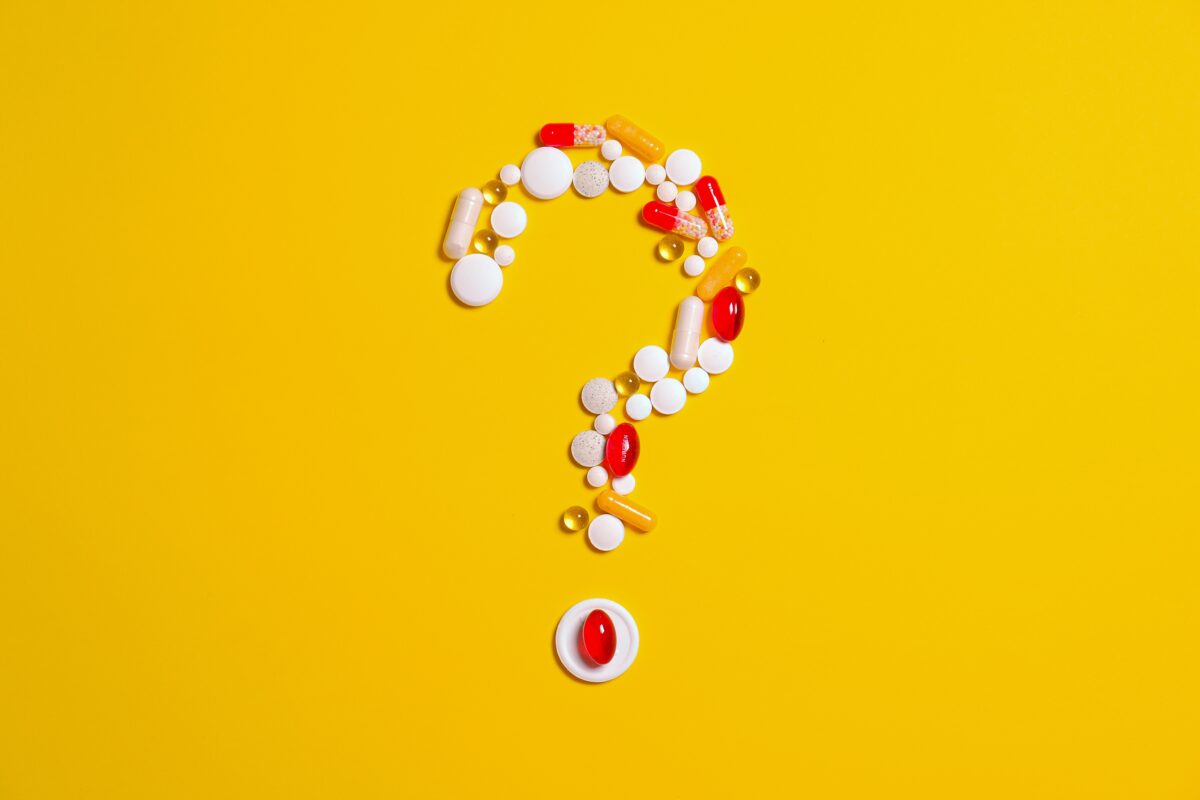Should I Always Get Brand Name Drugs?

You go to a doctor. They prescribe you a brand-name drug. But when you visit the pharmacy, the pharmacist tells you there’s a generic version available of the same drug. Now you are confused. Which one should you choose?
Should you always go for brand name drugs? Are generic drugs effective? Well, generic drugs work the same way as brand name drugs for the most part but there are key differences you should know.
Read on to know more about the difference between brand name and generic drugs. You will also get an idea of which one to choose and when.
What are Brand Name Drugs?
Brand name drugs are marketed and sold by a particular pharmaceutical company that has a patent for the drug. Let’s see how a brand name drug is born.
It all begins with research and development. The pharmaceutical company comes up with a potential new drug through their research. Now the company runs clinical trials and obtains the required approval from the FDA (Food and Drug Administration).
Once the company gets a patent for the drug, it is ready for marketing. That’s where the drug gets its brand name. The pharmaceutical company gives a catchy name that’s easy for the general public to remember. That’s one of the reasons why brand name drugs are so popular and often household names.
Differences Between Brand Name and Generic Drugs
Let’s look at detailed differences between brand name drugs and generic medications.
Active ingredients
Generic medicine contains the same active ingredients as its branded counterpart. The active ingredients are the therapeutic or medicinal portion of the drugs that act on your body to cure your illness.
For example, cephradine is an active ingredient present in the brand name drug Velocef. But its generic version—cephradine systemic—also contains the same active ingredient. No matter whether you buy the generic or brand name drug, the active ingredient in both will help fight bacterial infections in your body.
Antihistamines help treat allergies. Most of them have generic versions that are as effective as the brand name medicines because they have the same active ingredients.
Price
Generic versions of drugs are available at 80% to 85% lower costs than the brand name version. There are two reasons behind this huge difference in cost.
Firstly, generic drug manufacturers don’t have to spend money on research and clinical trials. These processes have already been completed by the company that discovered the drug and obtained the patent.
Secondly, the FDA doesn’t set any limit to the number of generic versions of a drug that can be produced. Thus, several pharmaceutical companies produce and sell the generic version of a brand name drug. That creates a competitive market and brings down prices.
Research costs
Brand drug companies incur considerable research costs. They have to spend on research and development before coming up with the final drug. But, a generic drug manufacturer doesn’t incur any research costs.
All the research work is already done by the brand name drug manufacturer. A generic drug company is generally responsible for purely manufacturing the drug and getting it approved by the FDA.
Insurance coverage
Insurance companies prefer generic drugs because they cost less. So, you will get opportunities for full coverage if you use generic medication.
But what if your doctor asks you to take a brand name drug? Chances are your insurance provider will not cover it. However, you can ask your doctor to file an appeal to the company so that they consider covering it.
Some companies cover brand drugs if you pay more for your insurance premium. But what if your insurance company denies coverage for your prescribed brand name drug? Time to go on a discount hunt!
Do your research and see if there are any coupons offered by pharmaceutical companies to reduce your medical expenses.
Appearance/Look
If brand name and generic drugs look the same, how will you differentiate between them?
Though they have the same active ingredient, different inactive ingredients are present in branded and generic medicines. The inactive ingredients do not react biologically in your body. But, they affect the looks, taste, or smell of the drug.
The U.S. trademark law doesn’t allow generic medications to have the same appearance as their brand name counterparts. However, there are strict standards regarding the extent of difference. That’s because they should have the same quality to pass the FDA approval.
A company has to file an Abbreviated New Drug Application (ANDA) if it wants to produce a generic drug. The FDA will check if the generic medication has the same quality as its brand name counterpart.
Though physical differences are allowed, a significant difference can create problems. For instance, the doctor and patients will be unable to identify the drug. Plus, it might also lead to false perceptions among the patients. They can start believing that the drug is less effective.
Approval standards
Generic drugs don’t get FDA approval easily. They have to fulfill certain conditions to get approved.
- The generic drug should have the same active ingredient as its brand name counterpart.
- The active ingredient should be present in the right amount. Plus, it should get to the target area in the recommended dosage.
- The manufacturer should produce the generic drug consistently by following all guidelines.
- The inactive ingredients in the generic drug should be safe for consumption.
- The drug should have a suitable box, bottle, or container.
- The generic drug should have the same effects on the body as its brand name variant.
Making a Choice: Brand Name Drugs vs. Generic Drugs
Here are some considerations to make while choosing between generic and brand name medications.
Quality
According to the Office of Generic Drugs, a generic medicine should have the same high quality, purity, and strength as its brand name version. Moreover, the manufacturing and testing sites of generic drugs should pass the same quality standards as brand name drugs.
The American College of Physicians advised doctors to prescribe generic drugs rather than the more expensive brand name variants. That testifies the quality of generic medicines.
Generic drug producers need to submit an Abbreviated New Drug Application to the FDA. They go through a strict approval process before getting the green signal to launch the drug in the market.
Thus, you can trust generic medicines to have the same quality as their brand name version.
Cost
Rising medical expenses can give you nightmares. Going for generic medication won’t dig a large hole in your pockets.
A 2017 study showed that 98%brand name medicines witnessed a regular annual or biannual price rise. That makes some expensive drugs unaffordable for common people.
Generic drugs cost 80-85% less than branded ones. That makes them affordable for the masses.
If the branded version of a life-saving drug is too expensive, you can always go for the generic variant.
Insurance coverage
Your insurance company will prefer that you use generic drugs rather than branded ones. That’s because they don’t want to bear the extra cost of brand name medicines.
However, your doctor may ask you to take the branded version of a particular medicine. Or the generic version of a drug might not be available. In that case, you can request your doctor to help you file an appeal with the insurance provider.
Some plans let you choose brand name medicines if you pay an extra premium. Make sure you read all the documents before purchasing your health insurance.
General customer sentiment
The general beliefs and attitudes of customers also influence their purchasing decision while purchasing drugs. Many customers have a belief that generic products are of inferior quality. This view extends to medicines as well.
Sometimes, the opinions of healthcare professionals also impact the views of patients towards generic drugs.
You should do your research rather than relying on established beliefs. Before buying any drug, read its label carefully. That will give you an idea of the composition, risks, and side effects.
Here are some questions you can ask your pharmacist to be sure about the medicines you are buying.
When To Go With Brand Name Drugs
Now you know that generic drugs have the same active ingredients as their brand name counterpart. Moreover, they have a lower price. But some situations might compel you to buy a brand drug. Let’s take a look at them.
No generic versions available
Some medicines might not have a generic version available. For instance, a new drug won’t have a generic version because the manufacturing company’s patent has still not expired. Other pharmaceutical companies can manufacture the generic variant only when the patent expires.
Some special types of drugs might also not have a generic variant. If the branded version is too expensive, you can request your physician for an alternative treatment.
If you have a poor response to the generic drug
Sometimes, your body might respond poorly to a generic drug. It happens rarely. But you can ask your health practitioner for a brand name version if the generic drug doesn’t suit you.
When taking narrow therapeutic index drugs
With some drugs, a minor difference in dose can lead to serious reactions. A study showed that patients experienced severe side effects when switched to a generic epileptic drug.
Try to check the therapeutic index of a drug before using it. The larger the therapeutic index, the safer the drug.
Sources
- https://www.goodrx.com/healthcare-access/medication-education/brand-vs-generic-drugs-whats-the-difference
- https://www.health.harvard.edu/staying-healthy/do-generic-drugs-compromise-on-quality
- https://www.northwestfamilyclinics.com/blog/brand-name-vs-generic-drugs-understanding-difference
- https://www.medicalnewstoday.com/articles/brand-and-generic-drugs




